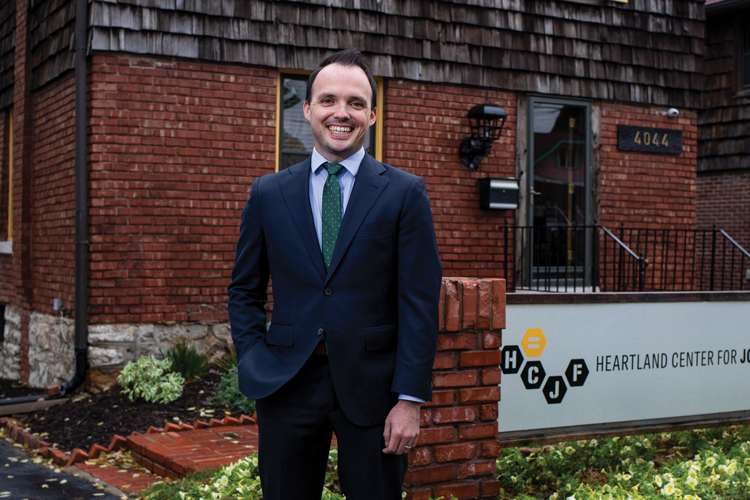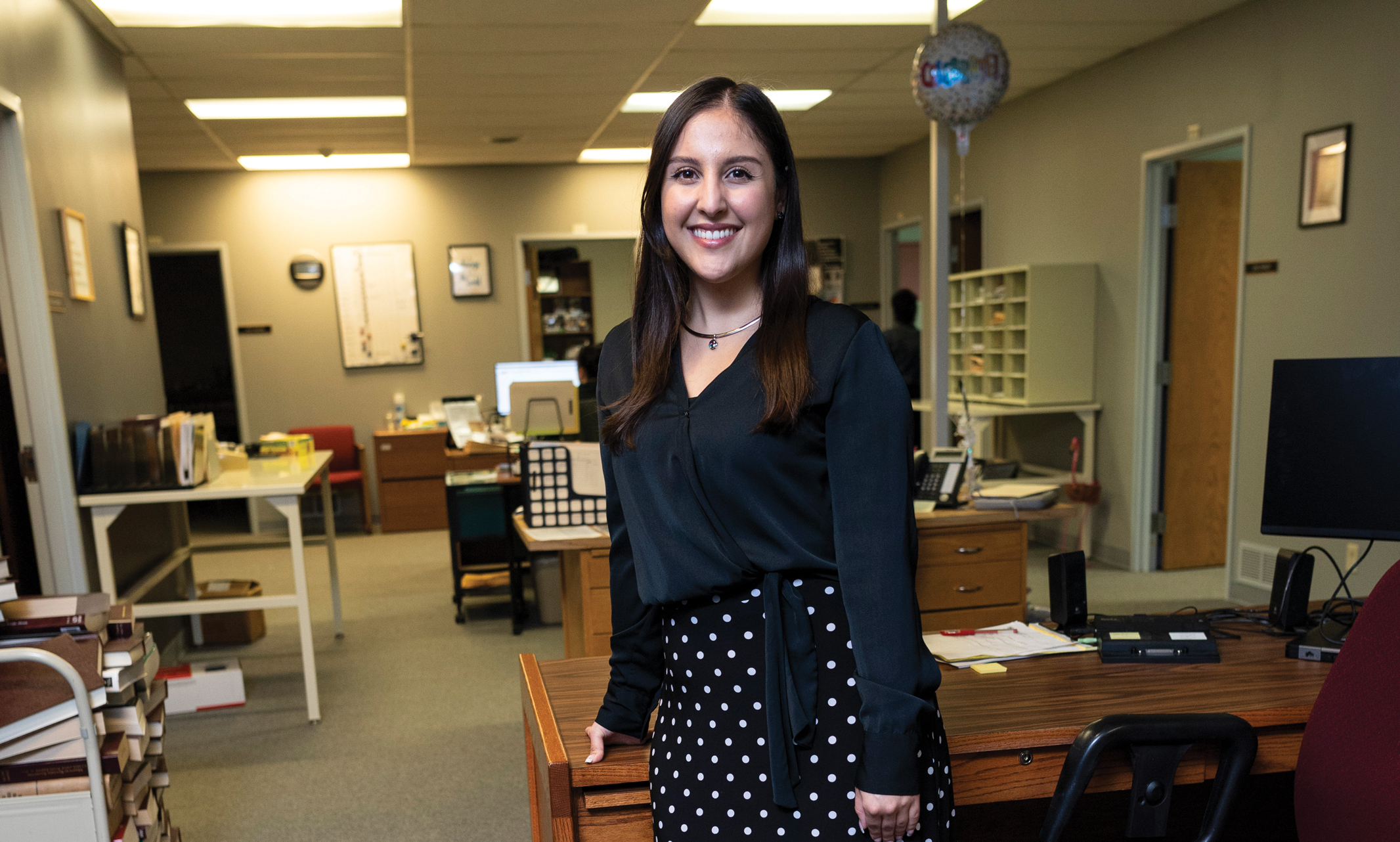The transition from law student to practicing attorney can be challenging. Add in the COVID-19 pandemic, quarantining and working and learning from home, and the transition becomes even more complex.
We spoke to three recent School of Law alumni about their transition from being a student, studying for and taking the bar exam and entering practice — all during a global pandemic.
Why did you become an attorney and what are your career goals?
Yasmin Herdoiza (J.D. ’21): I originally wanted to go into psychology or counseling. While working on my degree, I worked at a nonprofit where I did some in-home care for children with intellectual and physical disabilities. This experience showed me what it was like for disabled children living in poverty, and it sparked something in me to learn how to help them. I did some research on family law and talked to my father, who is an attorney, about guardian at litem work. He was super happy when I told him about my plans to go to law school, but there was no pressure to attend. I want to be a judge one day, because that is the way to make fundamental changes.
John Pipes (J.D. ’20): Before law school, I worked a couple of blue-collar jobs. I hadn’t found a career that suited me yet, but knew I wanted a job with a bigger purpose. I became a lawyer to help provide low-income Kansas Citians dignity in the legal process. Heartland Center for Jobs and Freedom is a great fit for the work I envisioned myself doing. I would like to stay here at Heartland and help build a movement alongside low-wage workers that uplifts them and improves their living and working conditions. My next career goal is to see Heartland Center and the Missouri Workers’ Center succeed in our campaign for Kansas City to pass a law that provides all tenants facing eviction an attorney to advocate for them. We know that universal representation is a game changer for tenants and all low-wage workers.
Claire Wyatt (J.D. ’21): I loved arguing and advocating from childhood onwards. My first love was film, but I quickly got burned out in the marketing and commercial world. I decided I wanted a career that gave me more purpose and the ability to serve others. I enjoy being in a courtroom. My passion is animal law. It’s a very small field with very few jobs. Animal law would be the dream. I also interned with Jackson County Prosecutors Office, which was great experience.
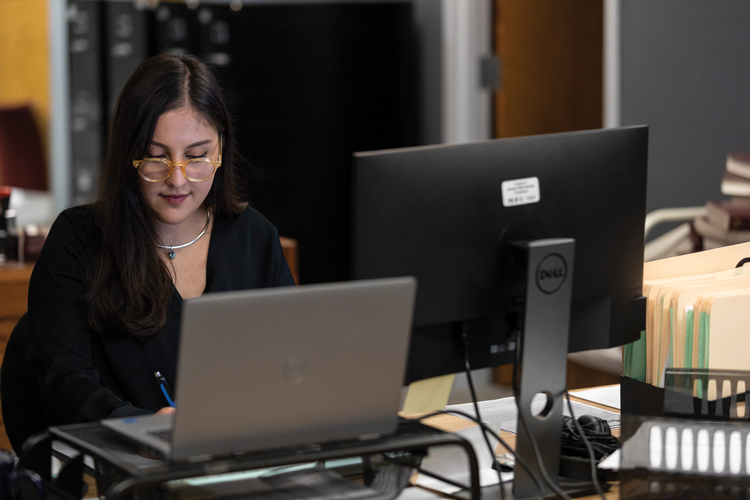
What were your strategies for studying for the bar exam?
YH: Exercise kept me motivated. I went on a lot of walks. I got a Fitbit and logged hundreds of steps each time. I also had a rotation of flashcards and took them on my walks. My boyfriend walked with me and he would read the cards to me.
JP: I gained a lot of good skills studying for the bar. Due to the pandemic, I was home a lot and had time to study. I treated law school as a job and had a schedule each day. The closer I got to the exam, I added more and more work to my days. Normally, I would have studied at the library, but I had to study at home. That was the most difficult. But I learned to make it work, and now I’m more equipped to work from home.
CW: I spent several days compiling requested documentation about my ADD diagnosis and previous accommodations. I then had to appeal my denial of accommodations when the board denied my request. Eventually, they reversed the decision and granted me partial accommodations. I felt really proud of myself for advocating for myself using the sharp skills that UMKC Law taught me.
Preparing for the bar, there were many days I was not able to complete all the tasks that my bar prep program had assigned me, but I persevered. I am very grateful that it ended up being more than sufficient to pass the bar.
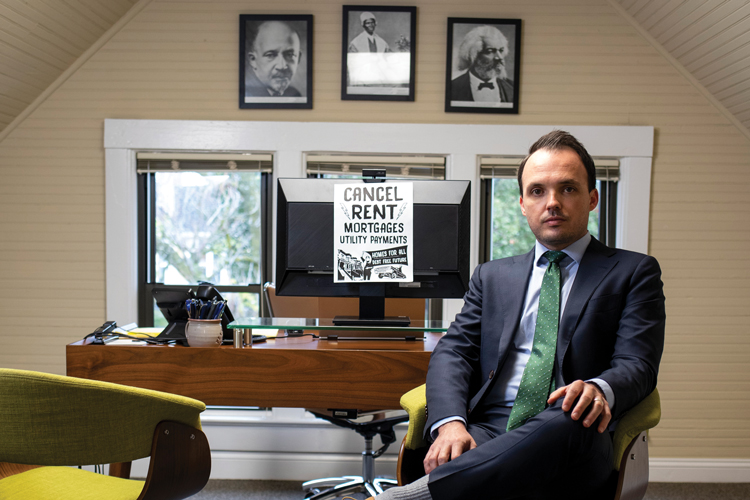
Where do you work now and what do you like about being an attorney?
YH: I work at the Missouri State Attorney’s Office. The experiences I got from my internship helped a lot. I have been doing discovery and working on low-level felonies. The pressure is high. When my clients are in custody, I worry about them.
I love being a public defender. I believe in the rehabilitative framework. Incarceration doesn’t prevent crime and affects more than just the accused. Many people can’t afford bond and that affects their families, jobs and housing. Sometimes people need to be provided a chance to succeed, even after they’ve previously failed. We must believe and support others.
JP: I graduated in May 2020, early in the pandemic. I went to work for a personal injury attorney for a few months, then decided to transition away from that work and applied for a Truman Fellowship. After three months as a Truman Fellow, I moved to the Heartland Center for Jobs and Freedom, where I took a long-term position doing similar tenant defense work. I work with low-wage workers who have found themselves defendants in eviction lawsuits and provide free legal representation and advice to those tenants.
While a Truman Fellow and now at Heartland Center, I enjoy providing great legal representation to individuals who so rarely have the money to hire a lawyer themselves. We at Heartland Center know how important it is for tenants to be represented by a lawyer. Without a lawyer, tenants lose their case 90% of the time since landlords are almost always represented by legal counsel. When tenants do have a lawyer advocating for them, the results are flipped, and an eviction is prevented in 99% of the cases. I enjoy helping to keep people housed in the long and short term.
CW: I am a Truman Fellow working with the UMKC Tenant Representative initiative. My daily job consists of performing client intakes, exchanging forms with the client, communicating with opposing counsel or pro se landlords (those who do not have legal counsel), reading leases and ledgers, drafting settlement agreements, updating clients on their case status and trying to help clients with related housing matters as best I am able. We have several evictions dockets each week in the Truman Fellowship, so court appearances are a big part of the job.
I love the work I’m doing. I love thinking critically and crafting arguments, and I love advocating for and helping people. I love solving problems, and I feel really fortunate that I’m in a position to help others solve theirs. Learning the law and finding a potential place for myself inside the institution of law has been one of the most empowering and transformative experiences in my life.
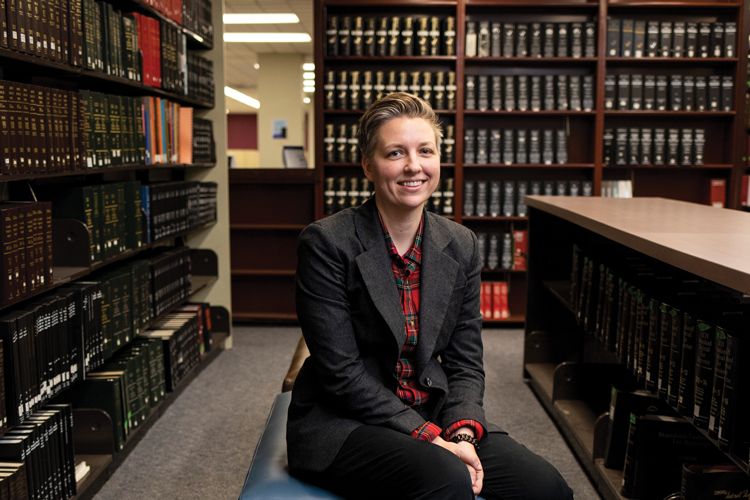
Tell us about your transition from student to professional.
YH: Through my internship, I argued in court before I graduated, which was helpful. When my internship pivoted from in-person to virtual, the change was very difficult. I had to do things on my own. The most challenging part of transitioning from student to professional was the responsibility. My co-workers are helpful, but it is my name, my bar license and no one else’s. No one is responsible for me, but me.
JP: The Truman Fellowship really helped me with the transition and to hone my skills. I made appearances in front of judges, handled my own caseload, and pursued the best way to keep evictions off a person’s record. It was a real honor to be awarded a fellowship. The people I worked with were passionate, and I enjoyed having a transition period. I dipped my toes into the landlord-tenant space, which I now am involved with at Heartland. Since my fellowship, I have found a wonderful group of colleagues at Heartland Center who are enthusiastic about our work and treat one another with respect. For that I am grateful.
CW: The transition between student and professional was slower and more painstaking than I expected. The last nine months felt like nine years. I went straight from school into intensive bar prep. Pandemic fatigue was very prevalent over the summer, but we all had to soldier on and prepare for the bar exam. It was very rigorous, but I had to remember why I was doing all this – because I want to help people. Getting internships during my time in law school helped to ease the transition between student and professional because I was confident I’d be well prepared by the time I was finally licensed to practice. I am also really grateful for the UMKC Truman Fellowship, which allowed me to work for UMKC’s Tenant Representative Initiative after I took the bar but before I received my bar results. There is a dire need for tenant assistance, and it’s great that UMKC was willing to jump in and offer help. It has helped out so many people in our community by allowing them to stay in their homes while the pandemic rages on.
What advice do you have for someone considering law school?
YH: There is a steep learning curve. You’ll be drinking from a fire hydrant, but it’s fun. There’s nothing better than a client telling you, ‘thank you.’ It’s a really good feeling.
CW: I would encourage future law students to accept that in learning this new, vast discipline, they might at times feel stupid or incapable; they might fall short of their aspirations. I would encourage them to accept this fear instead of fighting it: join the mock trial team even if they’re afraid of how many hours it will add to their schedule, participate in student organizations as members or allies, and speak their truth when they’re afraid of how it will be received by their classmates. I would also tell new law students that their interests may change as they learn more about different areas of law and to be open to new opportunities and horizons as they appear.
